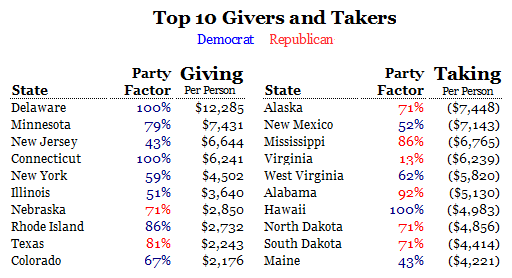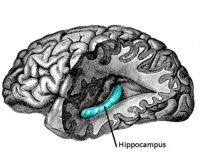Several people have told
me over the past year of their belief that the United States is becoming a
socialist country.
 |
| Many believe Obama is a socialist |
Pundits on radio and television proclaim
that we are redistributing wealth through taxes from rich to poor. Claiming liberty is under threat, it is said we are losing our capitalism and becoming a socialistic country.
There are two basic themes
being espoused. One is that the United States
is socialist already. The other is that
the United States
is becoming socialist.
Let us examine some data
to see if these claims are warranted.
What is Socialism?
Socialist countries try
to achieve and maintain an even balance between the poorest and richest
citizens. One of the major aims of
socialism is to ensure that people are economically equal. Non-socialist countries will have very rich
and very poor segments, where wealth and income are distributed unevenly.
 |
| A common thought |
Socialism in its
purest form is an economic system where a collective of people or government
owns the means of production and distribution.
In pure socialism there is no private property. In pure socialism everyone shares the
benefits of property equally.
Pure socialism has never been achieved by a modern nation state. Some level capitalism has always been
allowed.
Some real-life socialist-like
states have their government planning their economies,
allowing businesses to operate for profit under close supervision. Countries like Cuba,
North Korea and Burma practice
this form of socialism.
Other real-life socialist
like states allow workers to share control of
businesses with owners. India and Germany have variations of this
form of socialism. Where implemented
carefully and thoughtfully these kinds of economies thrive.
Lastly are those countries
with market
socialism. Nationalized businesses
compete within a market, returning the profits to the state. China’s recent economic boom has
occurred using this form
of socialism.
Distribution of Income
If we divide citizens into
five groups (quin-tiles) and look at their annual income the
difference between the richest fifth and the poorest fifth in socialistic nation would be small.
 |
| Current income distribution in the United States |
With a little reflection,
most people realize this is not the case for the United States. When asked to estimate the balance of incomes, most citizens predicted that there
was a significant imbalance between rich and poor.
When asked what their ideal balance was, citizens thought in
general terms that the rich should stay rich, but not so rich. They also thought poor people needed to earn more of the income pie.
The actual distribution of incomes is much different than expected in
the survey.
The wealthiest have
significantly more annual income than the average citizen expected.
The very poorest are much worse off than
citizens thought, estimated or considered ideal.
The current distribution
of income among citizens of the United
States is very clearly not showing signs of socialism
today. To the contrary, in terms of income distribution the United States
is not a socialist nation.
 |
Distribution of wealth and assets
in the United States |
Control of Wealth
In socialism the
government or collectives of citizens control the wealth of the land. If this is true we would see an even distribution of
wealth between citizens.
The facts
indicate otherwise.
One percent of the
population controls 43% of the total wealth of the nation.
The bottom 80% of the
population controls only 7% of the nation’s wealth.
Clearly property and money
are not being redistributed to the poor in any large scale. Rather, we see a very few people owning most
of the riches.
The current distribution
of wealth among citizens of the United
States is very clearly not showing signs of
socialism today. To the contrary, in terms of wealth ownership the United States
is not socialist today.
Income Trends
If the United States
is trending toward socialism, then we would see data that showed the poorest
citizens having gains in income while the richest citizens lost it.
 If we examine data from
1963, before the liberal Lyndon Johnson became president and started the Great Society program,
and compare it with income distribution in 2009, when the results of George W.
Bush’s economic
policies were in full effect, what shall we see?
If we examine data from
1963, before the liberal Lyndon Johnson became president and started the Great Society program,
and compare it with income distribution in 2009, when the results of George W.
Bush’s economic
policies were in full effect, what shall we see?
During this time frame,
there has been a surge in the number of citizens who are making less income and
plunge in the number of citizens who are making more.
Fewer and fewer people are earning good
incomes. More and more people are
earning poor incomes.
If we examine the over all
trend in incomes during this period, we discover that we are moving farther and
father away from a socialist economy.
In 1963, the United States
was much closer to a socialist balance of incomes than it was in 2009.
During
this forty year period, the economic balance has shifted drastically away from
the poor to the rich.
While the number of people
who are earning good incomes is dropping, the amount of income being earned by
the rich is steadily rising.
The current trend for
wealth and incomes among citizens of the United States is very clearly not
showing signs of trending toward socialism.
To the contrary, the United
States has been becoming less socialist as time passes.
Unions and Government
If the United States
was becoming socialistic, then unions of labor would be gaining power.
Data from 1948 until 2008
shows a different
trend. Labor unions, including
government and private sector unions, have dropped to less than half of their
peak rate during Harry Truman’s liberal administration.
If the United States was trying to
redistribute wealth, we would not see a dramatic fall in federal taxation on
the rich. In socialism, the rich are taxed heavily to support the poor.
When looking at tax
revenues by source, we see a dramatic rise in taxes on payroll income. This represents and increase in the taxation
of labor.
Meanwhile, taxes on
corporate revenue fallen significantly.
Businesses are given greater access to capital by reduced tax rates.
The individual tax rate is applied on money not earned by labor. The individual tax rate includes things like inheritance taxes, stocks profits, dividends, and
interest income. The individual tax rate has remained fairly consistent. Taxes on wealth not earned by labor have remained flat.
The current trend for
government and labor in the United
States is very clearly not showing signs of
trending toward socialism. To the
contrary, the United States
has been becoming less socialist over time.
Ignorance or Lies?
Clearly the facts show
that the United States
is NOT BECOMING SOCIALIST. It is in fact becoming less socialist.
So why are people saying
we are becoming socialist? I will not
venture to guess at their motives here, perhaps in another post. I will suggest a course of action for we the
listeners.
Those who ARE saying that
the United States
is becoming socialist are either ignorant of the facts or intentionally lying.
When a pundit does not
know the facts, they should not be speaking about the issue. Ignorance is not a qualification for
expertise. Listening to ignorance will
only breed ignorance. Continuing to
listen to the opinions’ of ignorant speakers is a foolish thing to do.
When a pundit does know
the facts and deliberately lies about them, they have broken trust and should
not be listened to. Audiences should
ignore them until they leave or change their ways. Listening to someone who lies to you is a
foolish thing to do.
Limbaugh, Palin, Hannity,
and others who spout that the United
States is currently socialist or becoming
socialist are either uninformed or telling falsehoods. Either way, wisdom suggests, we should stop
listening to them.




































